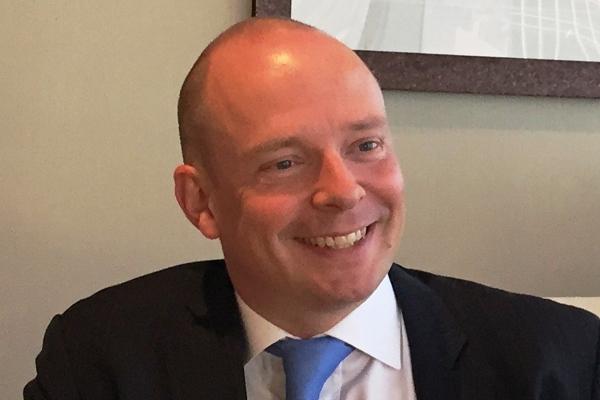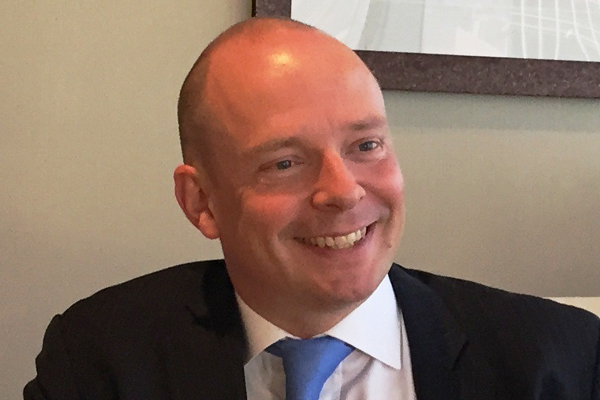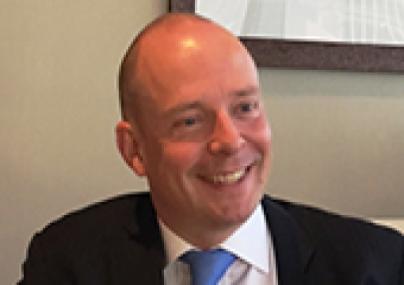
Jonathan Culshaw, the Asia managing partner of Harneys, speaks to Ranajit Dam about the offshore law firm’s Asia expansion strategy, the evolving demand for offshore legal advice in the region, and why hiring is his most important job
ALB: Earlier this year, Harneys opened a representative office in Tokyo, its third in Asia. What was the motivation behind this, and how does this fit in with the firm’s expansion strategy?
Culshaw: The key practice area is Cayman funds, which are a popular offshore offering in Japan. We felt that the retirement of leading practitioner Spencer Privett had created a gap in the offshore legal market servicing Japan, and I believe we have put together a really strong team.
Matt Roberts has been working in the Japan funds space for years and combines deep technical knowledge with thoroughness and an absolute commitment to timely delivery. Junko Shiokawa is another excellent lawyer and, uniquely among offshore firms, joins us after having previously held positions at blue chip law firms and institutions in Tokyo. Yuji Asano is our Japan Representative and a Japan funds industry veteran. Matt, Junko and Yuji are supported by our growing team of experienced funds lawyers in Hong Kong and Singapore. I’ve been surprised at how quickly the team has picked up traction, with our reputation spreading by word of mouth and numerous institutional-level mandates coming in since we kicked off this year.
ALB: It has been more than three years since you became the Asia managing partner of Harneys. What are some of the significant achievements that you’ve notched up so far? What are some of the lessons you have learnt along the way?
Culshaw: I arrived in January 2012. It was quite a transition in more ways than one, moving from a sleepy Hampshire commuter town to Hong Kong’s hustle, and from a transactional to my first management role – grinder to minder! Looking back, I am not sure what my credentials were, to be honest. I don’t have any language skills or expert knowledge of the region. I’d like to think though that I have helped create a harmonious office, that people here feel supported in their efforts, and that my communication style is always truthful and direct.
I look back with pride at our achievements; we’ve moved from a Hong Kong representative office of five fee-earners concentrating on finance work to a full-service offering of 33 qualified lawyers covering the whole range of offshore transactional, litigation and restructuring services, with a further six in our new office in Singapore. Our profile and share of premium work has also increased exponentially, and this is no mean feat, given the strength of our major offshore competitors here, which generally field good teams that provide responsive service.
It has been a real team effort, and I have been fortunate to work with a diverse and able team of colleagues and friends.
ALB: You have spent a total of 15 years with offshore law firms to date. How have you seen the role played by offshore firms evolving during that time, particularly in Asia?
Culshaw: I suppose over that time the markets have become more competitive and service levels have improved, with each of the material offshore jurisdiction’s biggest firms moving into each other’s jurisdictions and breaking what were close to monopolies or duopolies, in the case of BVI and Cayman. This has been good news for end users, but when taken together with some difficult economic conditions prevailing since 2009, this has also meant increasing pressure on fees.
ALB: What are some of the biggest challenges faced by offshore firms like yours in Asia during the ongoing economic downturn? How are you looking to overcome the same?
Culshaw: Despite recent market shocks, we haven’t seen any downturn in the amount of new transactional instructions sourced from Asia. And although the first part of the year in Singapore was slow as a result of problems in some of Singapore’s core SE Asian markets, workflow in that office has really picked up in the second half of the year. The elephant in the room is the prospect of a material slowdown in the Chinese economy but I am not qualified to predict the progress of economies or markets. I also believe it is more important to react quickly and decisively to what is happening now than to create pie-in-the-sky plans for imagined futures.
Having said that, we are positioned well, should there be any material and prolonged downturn. In 2014, we established the first dedicated offshore restructuring team based in Asia. The group draws on the collective expertise of a mix of our most senior corporate and insolvency law experts and litigators, and its work spans advising on non-contentious contractual restructurings to court-based schemes of arrangements. The team is already working on several high-profile and sizable mandates, including China Lumena, Kaisa Group and Titan Petrochemicals.
ALB: Are there any practice areas or countries in Asia that have been particularly lucrative for the firm in past year or so? What do you consider to be key growth areas in 2016?
Culshaw: Our most lucrative market historically has been the local market, Hong Kong, which is still by some way the most important Asian centre for offshore work. In terms of key geographies areas, our new office in Singapore has started to get some real traction, and Japan and PRC itself are our fastest-growing markets. In terms of practice areas, our banking and finance practice here in Hong Kong has always been strong and is thriving, and our litigation team under Ian Mann is the largest offshore team in Asia by some margin. Our funds offering is firmly established and growing, and we have a really deep bench of commercial and experienced funds lawyers. We have also recently beefed up corporate and are starting to win more premium mandates on that side.
ALB: The legal landscape in Asia has become more competitive, with a growing number of offshore firms setting up in Hong Kong and Singapore of late. What is your strategy to ensure that Harneys sets itself apart from the pack?
Culshaw: I think the role that strategy has in the growth and success of law firms tends to be overplayed. The idea that management of law firms can outthink their rivals with strategic decisions which leave them reeling is usually a fantasy. People and logistics trump strategy. The most successful law firms over time are not the ones with the best strategies or the best salesmen; they are the firms employing the best lawyers in their markets, supported by the best “legal logistics” of excellent support staff, know-how, precedents and IT.
The strength of a law firm’s brand is nothing more than the collective efforts of a generation of a firm’s lawyers. One weak lawyer giving bad or slow advice can quickly pollute a brand, particularly in the case of offshore, where the clients are primarily onshore lawyers, who are therefore well-equipped to determine the quality of legal work. Hiring then becomes critical, and I see this as my most important job. For the interview process, I have a few objective questions I ask myself about the interview performance, personality and background of each candidate after interview. But I also take into account any strong intuition: however good the answers and the CV are, if a hire feels wrong, it usually is wrong.
ALB: How do you see the demand for offshore legal advice developing in Asia in the immediate future? How is Harneys looking to take advantage of this?
Culshaw: The mainland China market is a very interesting market for offshore right now, with the local PRC firms transitioning into full-service international firms capable of managing more complex and cross-border work as lead counsel and linking up with other global firms to extend their reach. Together with the slow but steady liberalisation of the PRC’s capital markets, an increase in outbound work and more offshore funds being established from PRC’s key centres, this bodes well for the long term, although offshore is not immune to any slowdown in the general economy. PRC is our fastest-growing market and I am delighted to confirm that we are in the process of establishing a representative office in Shanghai. Kristy Calvert, previously managing director at Ogier Shanghai, will be joining us, and she has a wealth of experience in assisting mainland clients in understanding offshore products. We look forward to making more progress in that market.
CV |
1993-2000 |
Freshfields Bruckhaus Deringer |
Trainee and Manager (London) |
2001-2007 |
Walkers |
Senior Associate (Cayman Islands) |
2008 - 2011 |
Harneys |
Partner (London) |
2012- present |
Harneys |
Asia Managing Partner and Global Head of Investment Funds and Regulatory (Hong Kong) |

